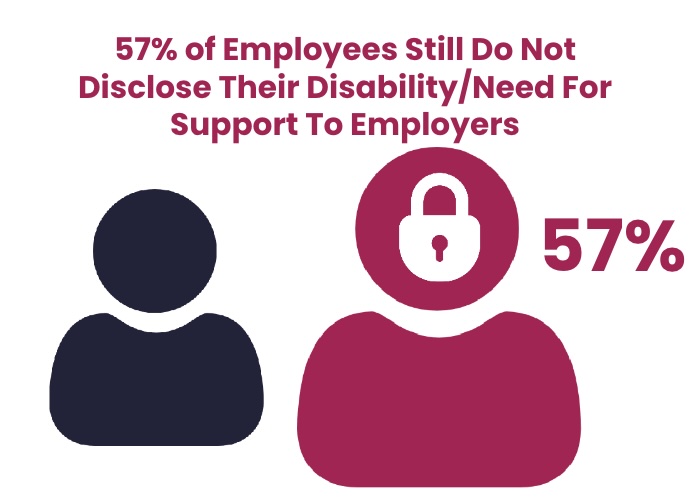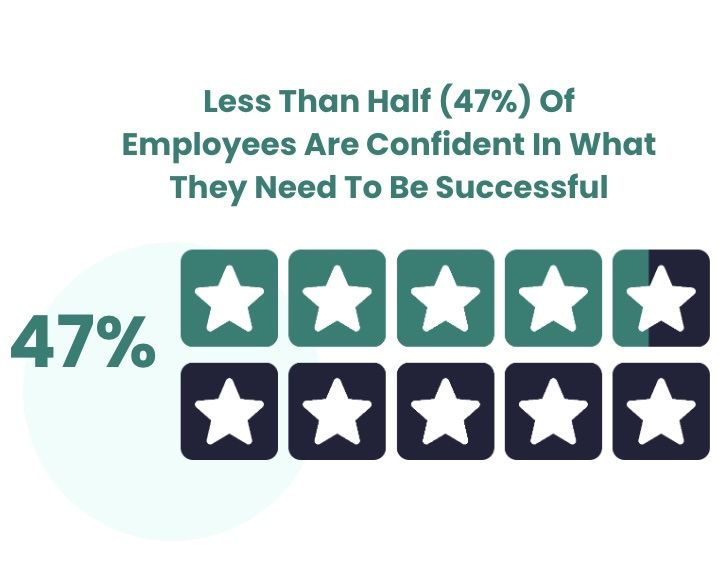New Report
Inclusively Research: The Disclosure Gap Is Real
Our survey of nearly 600 job seekers on our Hire platform reveals that more than half identify as having a disability, yet a significant number still choose not to disclose. Additionally, many report that their employers are not meeting their needs nor providing necessary accommodations. These findings highlight the urgent need for organizations to better understand and address the specific needs of their workforce.


Key Findings:
- Close to two-thirds of employees still do not disclose to their employers their disability or need for support.
- Over half say their employers are failing to meet their needs and 41% are ready to quit due to a poor experience.
- Employers have work to do to align their external messaging with what employees actually experience.
What This Means for Employers:
-
-
- The workforce is changing – By 2030, a projected shortage of 85m workers will exist – costing $8.5 trillion globally in unrealized revenue (source: Korn Ferry).
- The next generation of workers requires support to fill the gaps – 53% of Gen Z identify as neurodiverse, having some form of neurodivergence, like ADHD or dyslexia (source: Ernst & Young).
- Companies’ current infrastructure is not set up to support the needs of this workforce due to fragmented processes for employees needing support – <5% of people with disabilities disclose and ~30% meet the federal definition of having a disability (source: Disability:IN).
- The workforce is changing – By 2030, a projected shortage of 85m workers will exist – costing $8.5 trillion globally in unrealized revenue (source: Korn Ferry).
-
Download “Inclusively’s Research: The Disclosure Gap Is Real” report – click here to book a demo with our team.